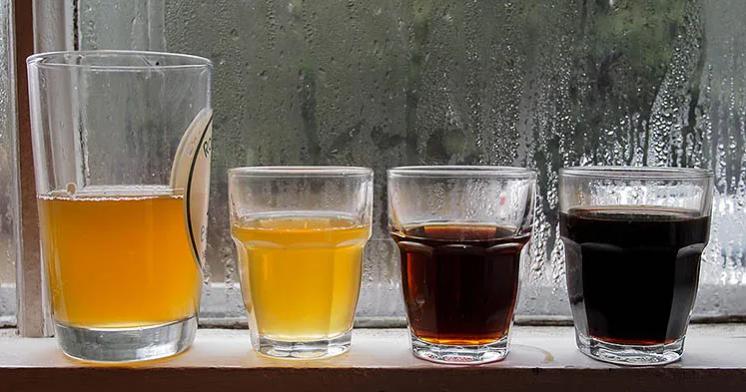If you’re a beer lover, chances are you’ve wondered if the homebrewed beer tastes as good as those from your favorite brewery. The answer is that it depends on how you brew it and what ingredients you use.
With proper care, homebrewed beer can have an excellent taste comparable to what you find in a store.
When you make home-brewed beer, the quality of ingredients used will significantly affect how it tastes. Start with fresh and high-quality hops and malts to ensure great flavor.
It’s also essential to keep your homebrew starter kit equipment ready and sterile, which will help keep bacteria and other contaminants away.
The beer brewing process itself is also essential for making a good-tasting beer. Following the instructions provided by the kit you purchased or from an experienced home brewer will ensure that your brew turns out great.
Guide on Making Your Home-Brewed Taste Good
Brewing Basics
Home beer brewing makes beer (or other alcoholic beverages) from scratch using essential ingredients such as malt extract, hops, water, and yeast.
When you begin making beer, the malt extract is added to boiling water to create a high-sugar “wort,” which acts as the base for your beer. This wort is then boiled with hops for flavor, aroma, and bitterness.
After that, it is cooled down quickly so that yeast can be added to ferment the mixture into alcohol. Finally, the beer is bottled or kegged and carbonated before serving.
How to Brew Beer
First, there are 2 types of homebrewing:
1. Extract Brewing
Most novice homebrewers should start with extract brewing because it uses the least amount of equipment and produces high-quality beer. For the remainder of this article, we’ll concentrate on extract brewing.
2. All-Grain Brewing
The sugars from malted (partially germinated) grains are used to make beer. The homebrewer independently extracts these sugars from milled grains in all-grain Brewing through a series of procedures. Homebrewers who utilize ready-made malt extracts for extract brewing completely omit the sugar extraction step because it has already been completed.
The Basic Steps Of Home Brewing Beer
1. Cleaning and Sanitizing – It’s important to clean and sanitize all of your equipment before you get started. This will help ensure that your beer is free from bacteria or other contaminants.
2. Mashing – This step involves soaking grains in hot water to extract their flavor and sweetness into the liquid known as wort. A Wort chiller and a vessel such as an old pot or
3. Boiling – The wort is then boiled with hops, which adds bitterness and aroma to the beer.
4. Fermenting – After boiling, the wort is cooled down, and yeast is added to start fermentation, which turns the fermentable sugars into alcohol and carbon dioxide gas. Splashing the beer around after fermentation will aerate it; this was good before fermentation, but aerating after fermentation will make your beer taste stale – think cardboard or wet paper.
5. Conditioning – Once fermentation has occurred, the beer needs to be aged for several weeks or months for its flavors to develop and mature fully.
6. Bottling– Lastly, the finished beer is bottled up with priming sugar (usually corn sugar) so that carbonation occurs during storage. A bottling bucket, an auto-siphon, bottles, and bottle caps are required for this step.
The Quality of Ingredients
The quality of ingredients you use in your home brewing will directly impact how good or bad your final product tastes. When you begin brewing, use high-quality ingredients such as fresh hops and malted grains. Be sure also to purchase a quality brewing kit with the necessary equipment, like a fermenter, bottles, and other necessary tools.
The Process Matters Too
In addition to using quality ingredients, having a solid brewing process in place will also help ensure good-tasting results when making your own beer at home.
Following directions closely and paying attention to details such as temperature control during fermentation and proper sanitation practices will go a long way towards producing great-tasting homebrews!
Additionally, keeping detailed notes on each batch can help identify areas for improvement if anything goes wrong – something all brewers should do regardless of experience level!
Does Home Brewed Beer Taste Good?
The lack of processing in homebrewed beer may give it a “homey” taste; however, some might argue that the freshness of homebrewed beer and the absence of preservatives or additives gives it an advantage. Ultimately, it will depend on your personal preference!
The most important factor is the quality of ingredients used in the brewing process. If you use low-quality ingredients or don’t follow instructions closely, then it is likely that your beer won’t taste good.
On the other hand, if you purchase quality ingredients and take the time to understand the brewing process, it is possible to make a great-tasting beer at home.
Another factor in determining the taste of your homebrew is how you store it. It’s important to keep your homebrew in a cool, dark place.
This will help ensure that all of its flavors come out and that it can cook quickly. Additionally, it’s essential to ensure your bottles are properly carbonated—otherwise, your beer will be flat and unappealing.
Finally, how long you let your homebrew ferment also plays a role in determining its taste. Different beers require different fermentation times; some may need weeks, while others only need days. It’s important to follow fermentation instructions closely so you don’t over- or under-ferment your brews.
Conclusion
Homebrewed beer can taste just as good as commercial beers depending on the quality of ingredients used and how closely one follows the brewing processes.
Your brew beer can taste just as good as (if not better than) store-bought beer, provided that you use high-quality ingredients and care when storing and fermenting your brews.
For those who have never tried their hand at home brewing before but are curious about giving it a shot, we recommend starting with easy beer recipes like pale ale or wheat beer for best results!
With enough practice, you’ll soon be able to create delicious beers right from the comfort of your own home!
Investing in equipment from reputable suppliers and taking classes from experienced brewers can greatly increase one’s chances of crafting delicious homebrews whenever they fire up their stovetop brewhouse!
With patience and practice, the beer-making process could become a master brewer in no time!




